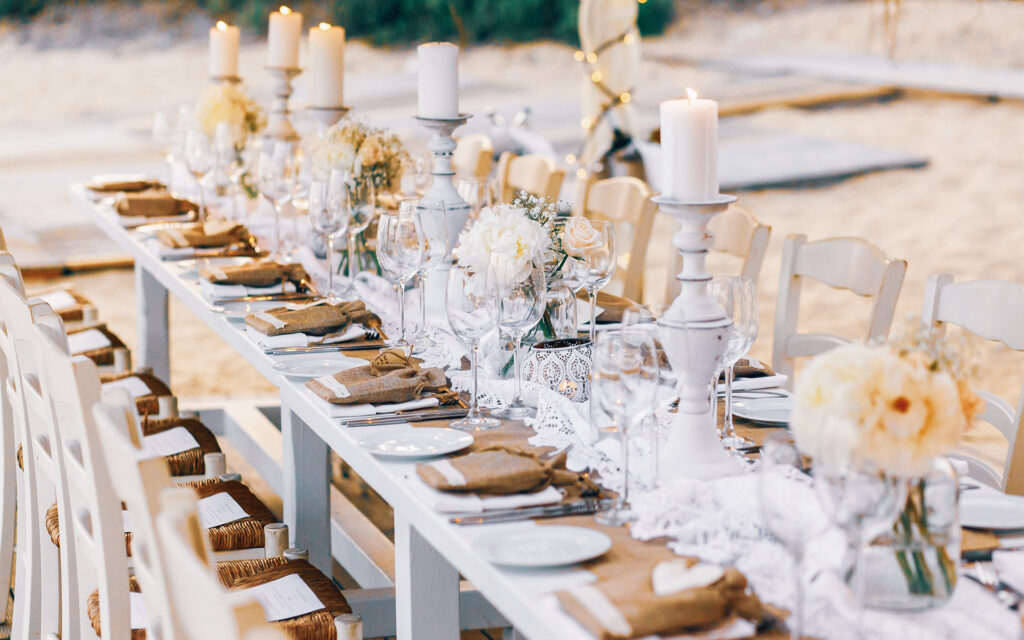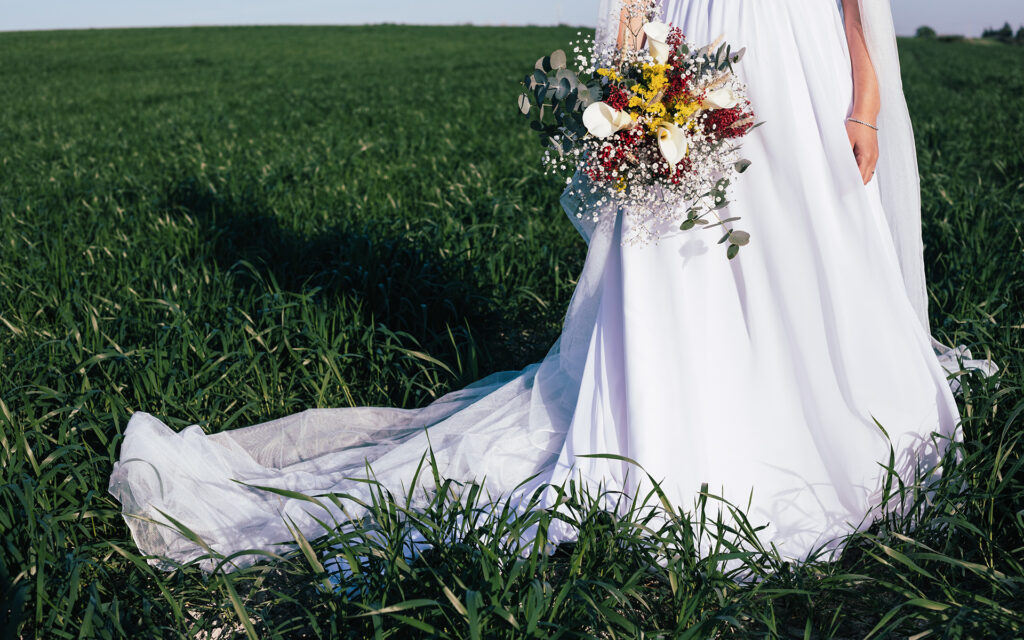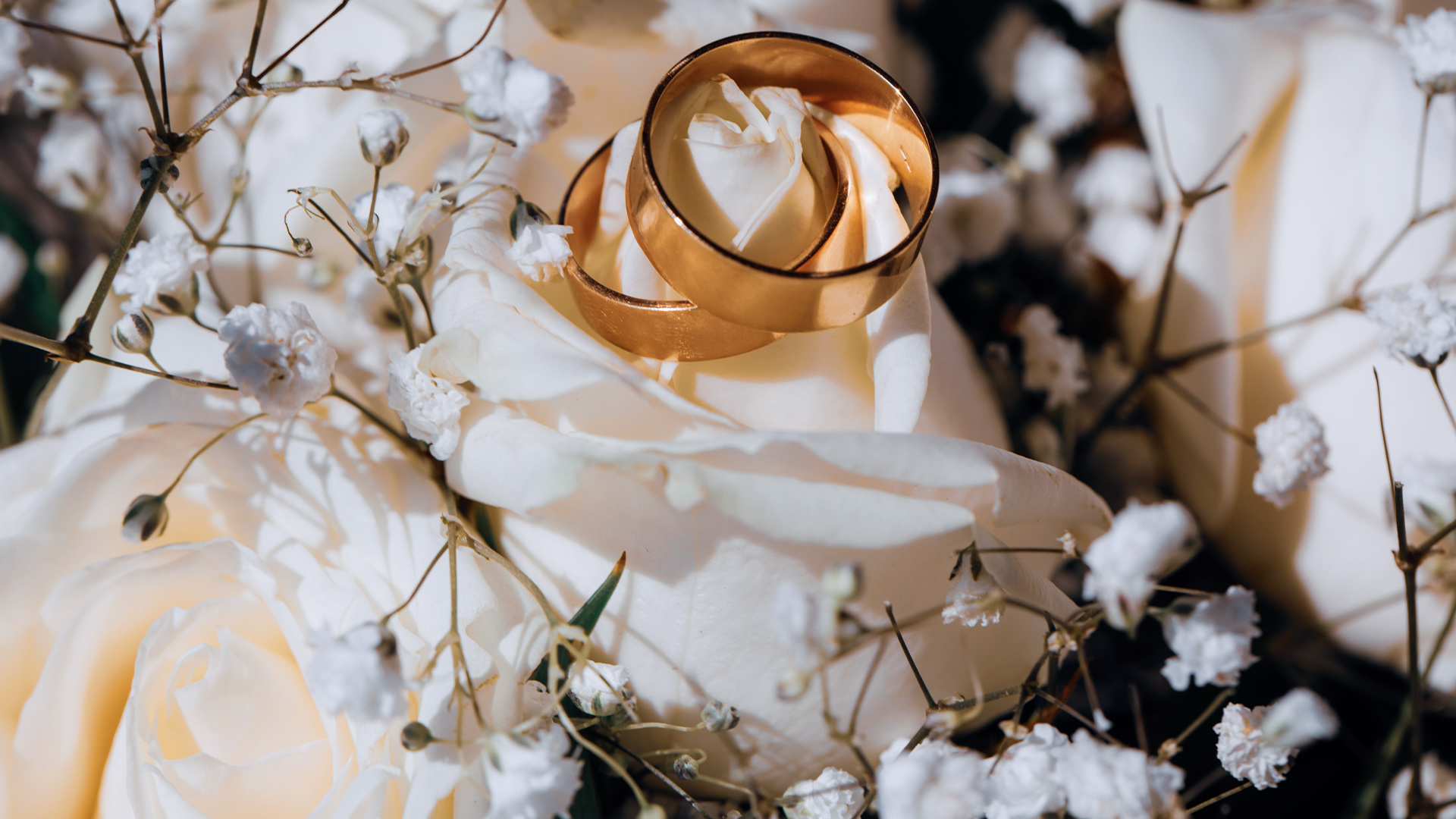The wedding industry is a sector that generates a strong impact on the global economy. However, in recent years, there has been a growing awareness of the environmental impact associated with clothing production and waste management after the event. More companies are adopting sustainable practices to reduce environmental impact and promote a greener wedding industry. It is estimated that the wedding industry will generate billions of dollars in annual revenue and offers positive implications, such as the provision of employment, bridal tourism, international trade, accessories, and related services.
Despite the positive aspects in the economic sphere, it must be recognized that this sector causes many problems in terms of the environment and especially regarding food waste, excessive energy consumption, and flowers and candles that after a few hours of use must be eliminated. In addition, unsustainable wedding dresses contribute to the growing environmental crisis as part of the high levels of pollution created by the fashion industry. Some companies are taking a responsible, eco-friendly approach to wedding planning that reduces environmental impact and promotes sustainable practices.

The main issues relate to:
- Food waste: Excessive amounts of food produced for events that can range from a few tens to hundreds of guests are often reduced to large amounts of waste to dispose of. In some cases, in the organizations most attentive to this type of waste, it has been decided to initiate collaborations with local companies that pick up leftovers to distribute them to people in need. Obviously, there remains the problem of food already served, but not consumed or partially consumed that can only end up in the garbage can.
- Wedding dresses: Wedding dresses are often worn only once and then forgotten in the back of the closet. This leads to a huge waste of resources and a significant impact on the environment. However, some companies strive to create sustainable wedding dresses using recycled fabrics or eco-friendly materials.
- Candles and flowers: These are common elements in wedding decoration, but often end up being discarded at the end of the event. To reduce their environmental impact, some companies are proposing sustainable alternatives such as candles made from soy or vegetable wax instead of paraffin. Upcycling finds a great ally in the company ThinksThinks. In addition, they promote the use of seasonal and local flowers, reducing the energy needed for transport and water consumption. In even more innovative cases, the flowers are used to create alternative leather to the animal as with the company Phool.
Fortunately, many companies are working to promote green and sustainable marriages. An example is “Eco Weddings”, an agency dedicated exclusively to the planning of ecological weddings. They collaborate with local suppliers, use recycled decorations, and promote the use of zero-kilometer menus. In addition, they work to educate couples on the importance of making informed decisions for their big day.

Another pioneering company is Food Rescue Weddings, which deals with the redistribution of surplus food from weddings. They work with restaurants, caterers, and charities to make sure leftover food gets to people in need. This initiative not only reduces food waste but also has a positive social impact.
Sustainability in the wedding industry
When it comes to sustainability in the wedding dress industry, a key aspect concerns not only the planning but also the choice of materials that make up the dress. Traditionally, wedding dresses are made from synthetic fabrics, such as polyester, which consumes a lot of resources and produces a lot of carbon emissions. However, more designers are adopting the use of sustainable materials, such as organic cotton, recycled silk, or eco-friendly tulle, which require fewer resources and have a lower environmental impact.

Awareness of post-wedding food and material waste is growing, and many couples are taking steps to reduce the environmental impact of their weddings. Choosing sustainable options and responsible consumption practices can help reduce the enormous waste associated with these events, favoring a more sustainable approach to wedding planning.
In conclusion, the bridal industry has a significant impact on the economy but faces challenges in terms of sustainability. The choice of materials, associated costs, and waste management are some of the main concerns. However, more companies are adopting sustainable practices, looking for eco-friendly alternatives.





